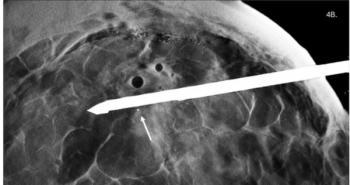
Siemens' ARTIS Icono Ceiling Angiography System Wins FDA Clearance
The system has an open architectural design to allow for third-party integrations.
Siemens Healthineers has announced that the FDA has cleared their latest installment of the ARTIS angiography system: ARTIS icono ceiling.
The ceiling-mounted system is designed for a range of interventional radiology and cardiology procedures as well as surgical procedures.
Enhancements to the system's C-arm allows for greater rotational capabilities and simplified cabling leading to cone beam CT acquisitions in 2.5 seconds at the head and 4 seconds at the right and left side of a patient's body. The short spin time both reduces motion artifacts and requires use of less contrast media.
“With the ARTIS icono ceiling, Siemens Healthineers combines excellent image quality and a previously unseen level of design flexibility to be the angiography system of choice for an unprecedented number of interventional radiology and cardiovascular procedures,” said Kris McVey, Vice President of Interventional Radiology and Cardiology at Siemens Healthineers North America, in a statement.
In addition, the system includes predefined Case Flow settings which can help improve overall efficiency and drive standardization within a health system. Benefits of the case flow settings include faster positioning and reduced patient radiation dose. Incorporation of the OPTIQ image chain also helps reduce patient dose while maintaining image quality, with the ARTIS system able to acquire and display images instantly with no loss in image quality.
Lastly, the open-architecture system allows for vendor-neutral integrations.
The ARTIS icono ceiling joins the ARTIS icono biplane and floor systems, which include capabilities with specific advantages for stroke treament and those with budget and space constraints, respectively.
Newsletter
Stay at the forefront of radiology with the Diagnostic Imaging newsletter, delivering the latest news, clinical insights, and imaging advancements for today’s radiologists.














